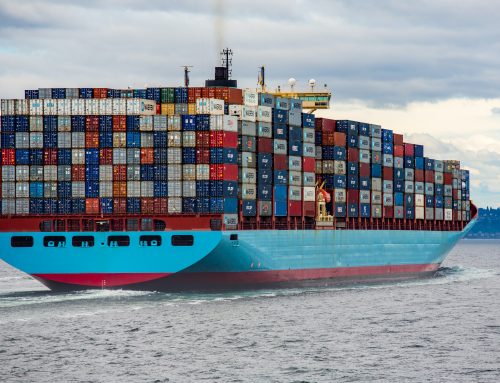The Transportation and Infrastructure Committee has voted to approve several measures to strengthen the country’s supply chain and guard against future supply chain disruptions.
The approved legislation includes:
The Soo Locks Security and Economic Reporting Act of 2023
Directs a federal study of potential security risks of the Soo Locks in Sault Ste. Marie, Michigan – a critical supply chain link between the U.S. and Canada – and the economic ramifications in the event of their operational failure.
The Ocean Shipping Reform Implementation Act of 2023
Builds upon the Ocean Shipping Reform Act of 2022, including by allowing the Federal Maritime Commission (FMC) to review complaints about market manipulation and anti-competitive operations of maritime exchanges, and strengthening the FMC’s authority to crack down on unfair trade practices.
The Truck Parking Improvement Act
Expanding access to parking options for commercial trucks by increasing resources for the construction of new Commercial Motor Vehicle (CMV) parking, adding additional parking at current CMV parking areas, and making improvements to existing CMV parking. It also requires CMV parking spaces constructed to be accessible to all CMVs without charge.
The Licensing Individual Commercial Exam-takers Now Safely and Efficiently (LICENSE) Act of 2023
Eliminates regulatory barriers and addresses truck driver shortages by making permanent two waivers issued by the Federal Motor Carrier Safety Administration (FMCSA) during the COVID-19 pandemic to allow for more efficient Commercial Driver’s License (CDL) testing.
H.R. 3318, establishing a 10% axle weight variance for dry bulk
Allows for a 10% axle variance for dry bulk, without any increase in the overall federal gross vehicle weight (GVW) limit. The bill makes an allowance for the fact that dry bulk – nonliquid cargos such as grains, plastic pellets, and aggregates – can shift during transportation and redistribute a truck’s weight. The bill ensures trucks don’t have to unnecessarily reduce their loads.
Streamlining the environmental review process for major projects
Extends One Federal Decision (OFD) environmental review streamlining provisions – such as combining environmental documents among agencies, concurrent agency reviews, creating reasonable page limits for documents, and reasonable time limits for reviews – to port, aviation, and pipeline projects, as applicable. OFD was already approved in law for highway projects under the Infrastructure Investment and Jobs Act.
The Supply Chain Improvement Act
Ensures that priority consideration is given to projects that would improve or build resiliency into the supply chain under the INFRA and MEGA discretionary grant programs, and prioritizes infrastructure projects that improve the supply chain for certain U.S. Department of Transportation grant programs.
The Intelligent Transportation Integration Act
Directs the Secretary of Transportation to create and implement a program to bolster transportation management and the efficiency of Federal-aid highways by leveraging third-party data.
The Motor Carrier Safety Selection Standard Act
Increases efficiency and highway safety in the supply chain network by requiring the Federal Motor Carrier Safety Administration (FMCSA) to develop a new Safety Fitness Determination process to change the way a motor carrier is rated.
The Rolling Stock Protection Act
Closes a legal loophole and prohibits four public transportation agencies from continuing to use Federal Transit Administration (FTA) funds to procure rolling stock from State Owned Enterprises (SOEs), including a Communist Chinese-controlled manufacturer.
Establishing a safety data collection program for certain 6-axle vehicles
Establishes a voluntary 10-year pilot program for states to increase truck weights on federal interstates up to 91,000 pounds on six axles.
The Carrying Automobiles Responsibly and Safely (CARS) Act
Allows automobile transporters to continue carrying the same number of vehicles as they currently do. The bill addresses the increasing weight of newer vehicles, allowing a 10% weight increase for certain types of automobile transporters.
To stay informed on trade news and other important updates, stay connected with a customs broker.



